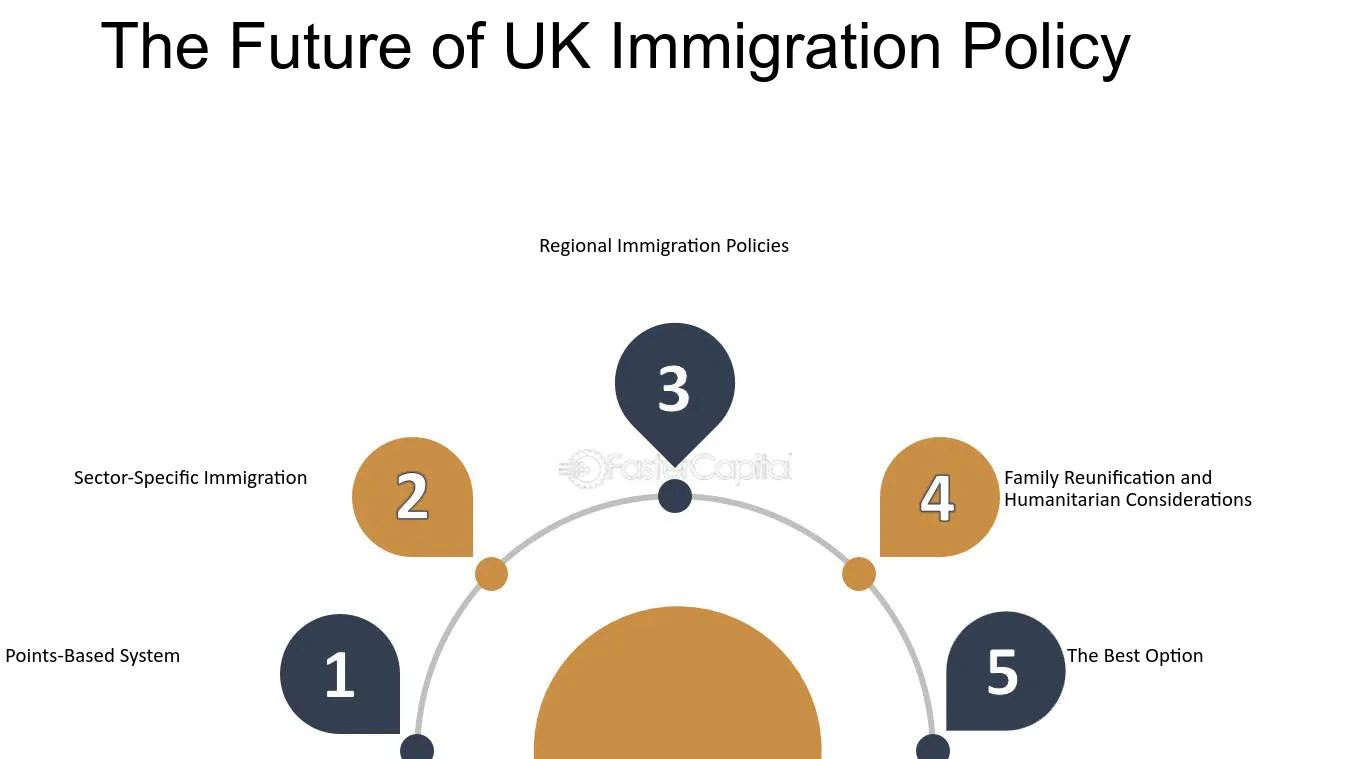UK Immigration Shift Policies Politics and Future Plans
The UK government has taken significant measures to address soaring net migration, introducing a comprehensive plan to curtail immigration levels. Home Secretary James Cleverly unveiled a strategic five-point approach, emphasizing the urgency of lowering immigration, calling the current rates "far too high."

Key Changes to Immigration Policy
The announced changes encompass several critical adjustments:
- Salary Threshold Increase: Skilled overseas workers will now face a higher minimum salary requirement, escalating from £26,200 to £38,700.
- Impact on Eligibility: Approximately 300,000 individuals eligible to enter the UK in the past year will find themselves ineligible under the new regulations.
- Family Visa Income Criteria: The minimum income for family visas has been significantly raised to £38,700.
The Government's Commitment
In a statement directed at Members of Parliament, Cleverly asserted the necessity of reducing migration, citing historical misuse of health and care visas. He emphasized the need for a fair, legal, and sustainable immigration policy.
Political Implications and Election Focus
The surge in net migration poses a considerable challenge for Prime Minister Rishi Sunak and the Conservative Party. Having promised to control borders and reduce net migration since 2010, the current numbers create a pressing political hurdle for the government.
Future Plans and Opposition Reactions
With the upcoming general election in 2024, immigration policy has become a focal point. Labour's lead in opinion polls has prompted Sunak to pledge decisive action to decrease net migration, as stated in his editorial in the Sun newspaper.
Comprehensive Policy Adjustments
In addition to salary-related modifications, the government has announced several pivotal changes, such as:
- Prohibiting care workers from bringing family dependents to the UK.
- Ending the practice of companies paying workers below the standard rate for jobs on a shortage occupation list.
- Implementing a substantial increase in the annual NHS charge for foreign workers from £624 to £1,035.
- Raising the minimum income for family visas significantly.
Impact Assessment
Cleverly indicated that these alterations, combined with a reduction in student dependents, could result in approximately 300,000 fewer arrivals in the coming years compared to the previous year, based on internal calculations within the Home Office.
Mixed Reactions and Concerns
While the government's plan has garnered support from some Conservative MPs, it has faced criticism from opposition figures like Labour's Yvette Cooper, who highlighted the lack of substantial reforms addressing training and fair pay requirements.
Sector-Specific Challenges
The healthcare sector, heavily reliant on foreign workers, faces significant challenges with staffing shortages. The government's plan acknowledges this concern, with implications for care workers' ability to bring their families to the UK.
Impact on Students' Graduate Visa
The UK's graduate visa, offering a two-year stay post-course completion, is currently under scrutiny by the government to curb perceived misuse of the system.
Within the past year until June, over 98,000 graduate visas were approved, prompting this review.
Further changes are in motion; starting in January, limitations will be imposed on students bringing family members along. Only those enrolled in postgraduate research courses will retain this privilege.
Additionally, a significant alteration prohibits students from transitioning to work visas before finishing their studies.
Unforeseen Consequences
The decision to raise the family income threshold to £38,700 has sparked discussions about its potential impact on specific demographics, particularly lower-income British citizens, women, and younger individuals earning lower wages.
The government's efforts aim to recalibrate immigration policies significantly, but the complexities and potential ramifications across sectors require thoughtful consideration and ongoing evaluation.
Steps to Secure Your eTA for the United Kingdom
- Step1: Complete the online application form by entering your passport details and required personal information.
- Step2: Make the payment securely online using a credit or debit card.
- Step3: Check your email for the payment confirmation and receive your eTA electronically.
